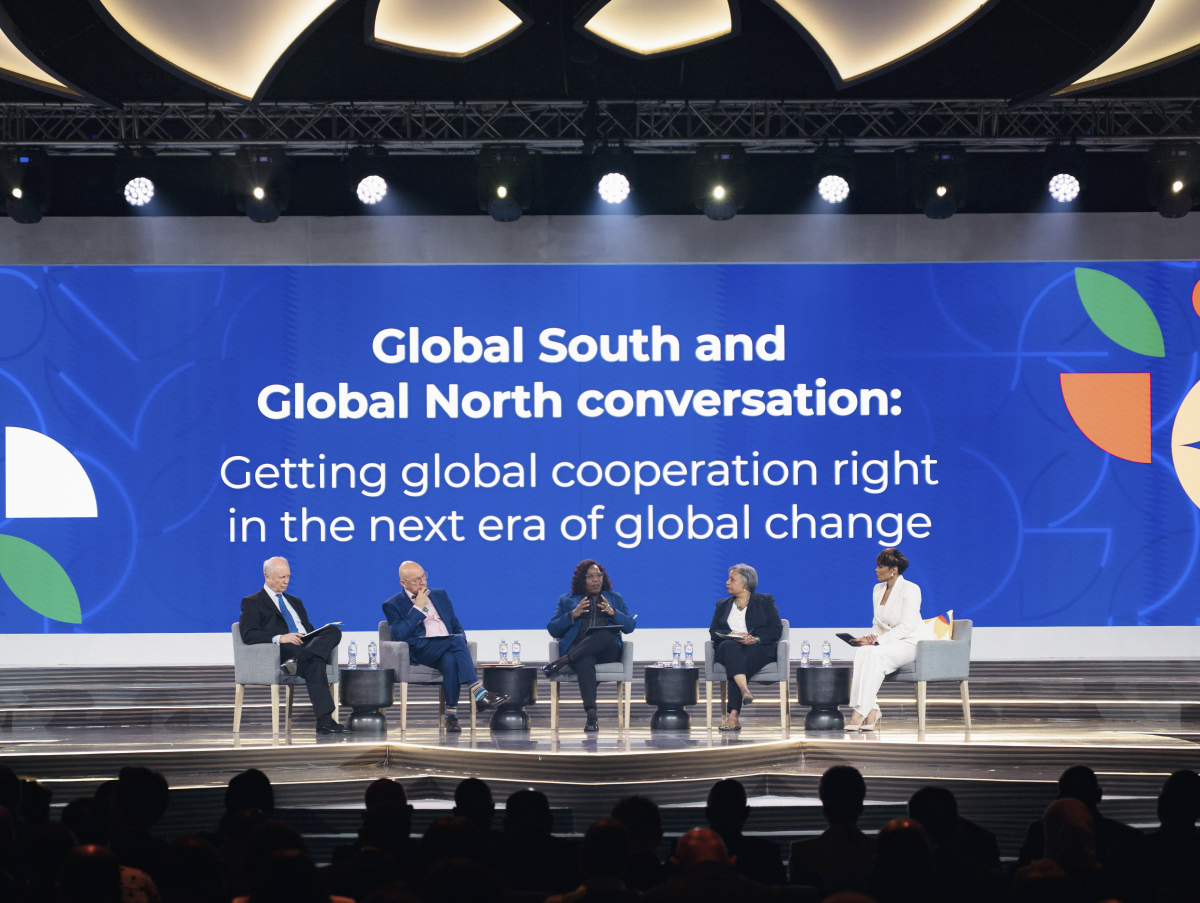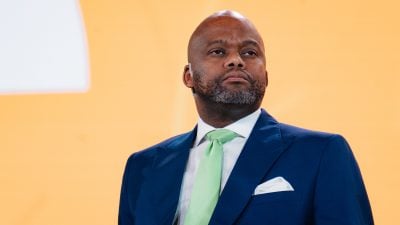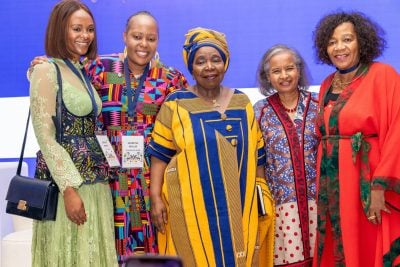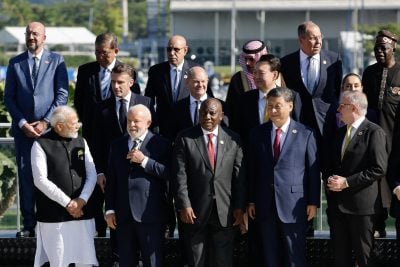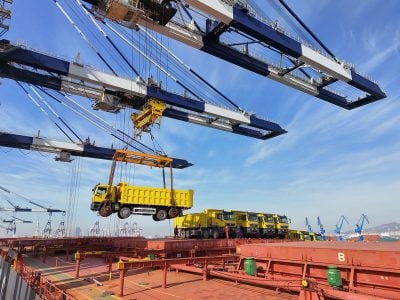The Global South is not waiting to be invited to the table with the Global North. It is leading with ideas, innovation and investment and seeking partnerships with other regions.
Discussions on rebalancing the “global equation” have been part of the fabric of the B20 meeting in South Africa as an array of minds try to unpack where the world has come from and where it is going.
Key to this is the discussion of how different regions can work meaningfully together in a changing world.
The fact that the G20 meeting is the first in Africa, a continent that has a growing influence in the Global South, has led to a greater emphasis on how it could contribute to the future.
The discussion is important, given the reality that Africa’s demographic trend is likely to position it as a leading growth pole in years to come.
Population growth is expected to triple by 2050, with the continent having the largest youth numbers in the world by then – about one in four people globally. This means Africans are likely to be the workforce of the future.
The continent is currently one of the fastest growing regions in the world, and it is rapidly modernising as it seeks self-sufficiency and resilience in its collective response to an uncertain global order.
South Africa’s G20 leadership has carried African countries along, with many heads of state attending the summit at the invitation of President Cyril Ramaphosa.
Strengthening position of the Global South
In recent years, the Global South has led the G20, as Indonesia, India, Brazil, and South Africa each hosted consecutively. This has allowed the voice of the bloc to gain some traction.
All these developments suggest the need to develop a new compact with the Global North as alignments, power and growth shift in the wake of a fragmented global order.
These thoughts were the basis for a vibrant discussion at the B20 meeting ahead of the G20 leaders’ summit in Johannesburg.
It has been widely mooted that stronger cooperation between the major economies is crucial to avoid disruptive financial and economic crises. But as the Global South rises, the nature of cooperation is changing.
New voices are asserting that true cooperation means co-creation: shared leadership, mutual accountability and an equitable voice in global governance.
This all takes place in a world seeking new direction.
The end of the old order, the beginning of a new era
This was aptly summed up by the Economist magazine in an editorial, The World Ahead in 2026 in which it posits that 2025 was the year when “the old order ended”.
“President Donald Trump demolished decades-old norms and institutions as dramatically as he set about reshaping the White House.”
In a B20 discussion focused on creating a new compact between the North and South, Charles Johnston, Managing Director, Citi Global Government Affairs and Chair, Business, OECD, said the world is evolving as it enters a new era. It is an era that marks a departure from a world dominated by World War 2 institutions.
“The post WW2 ‘American era’ is, maybe happily, coming to an end. Governments are now taking responsibility for things they had not maybe 20 or 30 years ago. I am optimistic about the outcome of what we are dealing with today.”
New alignments are taking place in the modern world, with countries looking to each other to create new ties and lessen their dependence on traditional markets.
On the downside, the changing environment provides fertile ground for populist leaders, and there has been a tectonic shift in industrial policy, he said, hinting at developments in the US.
“We must all be sensitive to this. Protectionism can creep in which has nothing to do with national security. We must be careful about how industrial policy is rolled out.”
Trevor Manuel, Chairperson & Independent Nonexecutive Director of Old Mutual’s Board and Chair of the G20 Africa Expert Panel, took a more hardline stance on the issue.
He concurred with the Economist’s view that this year marks the time when the old order ended. “When you break traditions, it has a profound impact. That line that separates north and south and west and east becomes a cleavage. It is not just a line that separates us but a developmental system.”
The respect between nations and developing systems that advances people “is now very broken”, he said.
He said developing countries did not have a chance with the international status quo ranged against them, in terms of the cost of capital, the bias of ratings agencies and other issues.
A “reimagined” system of cooperation
Without meaningful change, “political risk will overwhelm everything we are talking about”. This trajectory would not change without leadership that could act effectively to create a new future.
How might that future look? Alexia Latortue, Distinguished Non-resident Fellow with the Centre for Global Development told the B20 meeting that the world needs a “reimagined” system of cooperation.
Although “nationalistic urges” were popping up around the world, the current situation “provides an opportunity for the community of nations to co-create, for the first time, the vision, narrative, principles and implantation strategy for a new system of cooperation; a system that is more legitimate, representative and efficient”.
The G20 points the way to formulating a new world order. “The human ability to reset is stronger than the nationalist tendencies we see,” said Latortue.
New thinking needs to deal with old challenges. One of these is unemployment and an increasing mismatch of skills with employer needs across the world.
Jacqueline Mugo, Executive Director & CEO of the Federation of Kenya Employers and President of the International Organization of Employers, said much attention was given to trade and security but other key challenges facing the world are far more granular.
Job creation and skills training need to be high on the list of priorities, along with ensuring the survival of enterprises, which are facing turbulent times and many are struggling to survive in a world of rapid disruption.
“Companies are having to find new ways to survive by diversifying, downscaling, changing production patterns and locations and changing the way business is being done. A new layer of challenge for employers is the rapid shift to technology, which demands finding solutions to the widening disconnect between the world of work and available skills.”
She called for governments and the private sector to work together in finding solutions to skills development, investing in training and improving current low levels of productivity. “If you are going to sign bilateral labour agreements, you need the voice of business.”
“There are more than 12 million job seekers in Africa. We have a youthful population but the continent cannot fully absorb them. We can share talent across borders but we need to see the economic value in doing this. We need to handle migration of talent in a way the benefits both countries.”
 Sign in with Google
Sign in with Google 